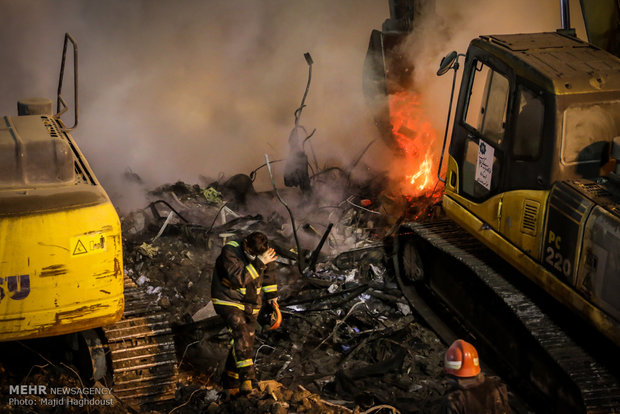January 03, 2017

The remains of 15 firemen and four civilians were pulled from the wreckage. A 16th fireman injured fighting the fire before the collapse died in the hospital.
Sixteen was the total number of firemen who did not answer the roll call after the collapse. Officials said 10 families of people working in the Plasco building reported their loved ones never came home. But only four remains of civilians were found, leaving the fate of the other six unanswered. Three of the four civilian
bodies have been identified, officials said.
Throughout the nine days after the collapse, long lines of trucks assembled outside the scene of the collapse as load upon load of debris was dumped into the trucks to be carted away. The 17-story Plasco building—the highest building in the capital when it went up in the 1960s—was reduced to three stories in height after the collapse. Now it is down to ground level.
President Rohani has appointed a 10-member commission to investigate the cause of the fire, the collapse and how officials dealt with the incident. The probe will also deal with what safety measures were taken—or were not taken—before the fire.
Many Reformist politicians have been blaming the disaster on Tehran Mayor Mohammad-Baqer Qalibaf and demanding his resignation. Qalibaf is widely expected to challenge President Rohani in the May elections, so Reformists are eager to cause him political problems to diminish his electoral appeal.
Just last September, the Tehran City Council approved a new fire safety ordinance requiring the municipality to inspect buildings regularly for fire hazards and to enforce the rules on building owners. City officials have said the Plasco building’s owner—the Mostazafin Foundation—was repeatedly warned of violations, including garment makers who rented units and piled stock in corridors and on stairwells.
An estimated 3,500 people worked in the building and have lost their jobs.
A week after the tragedy, one firefighter injured in the blaze remains hospitalized.